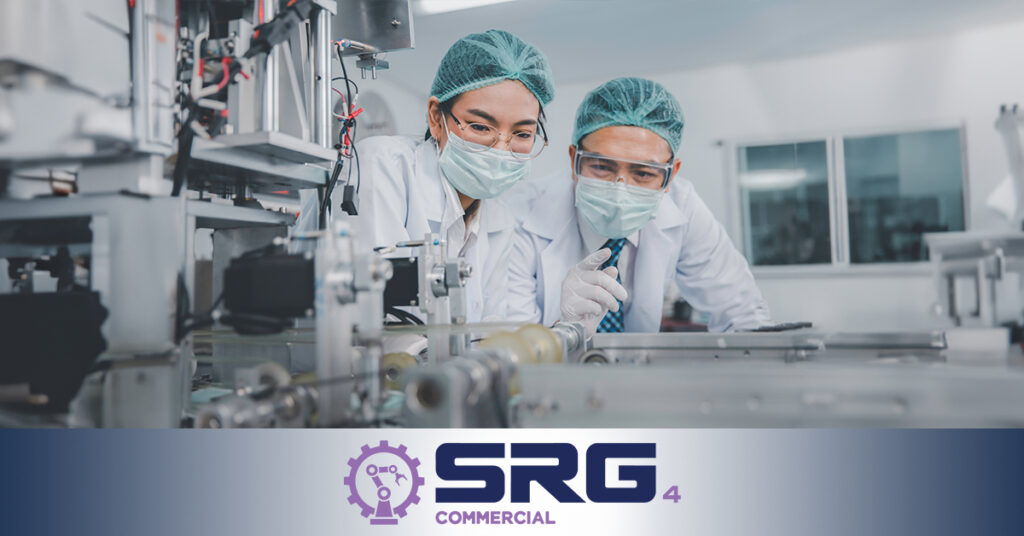Pharmaceutical manufacturing offers a wealth of career opportunities for individuals seeking to make a significant impact in healthcare. The industry is highly specialized, requiring specific skills and qualifications, but it also provides diverse and rewarding career paths. Here’s a closer look at the key roles, necessary skills, and pathways for advancement that can help commercial job candidates navigate this dynamic field effectively.
Exploring the Diversity of Roles in Pharmaceutical Manufacturing
Pharmaceutical manufacturing encompasses a wide range of roles. Key positions include process engineers, quality control analysts, and production managers.
Process engineers are responsible for designing, implementing, and optimizing manufacturing processes to ensure efficiency and compliance with regulatory standards. Quality control analysts play a crucial role in maintaining the safety and efficacy of pharmaceutical products. They conduct tests and inspections to ensure products meet stringent quality and regulatory requirements. Production managers oversee the manufacturing process, coordinating teams and resources to meet production goals while maintaining high safety and quality standards.
Other significant roles include validation specialists, who ensure that manufacturing processes and equipment meet regulatory requirements, and supply chain managers, who oversee pharmaceutical product procurement, production, and distribution. These positions require a combination of technical expertise, attention to detail, and strong organizational skills.
Key Skills and Qualifications for Success in Pharmaceutical Manufacturing
Success in pharmaceutical manufacturing requires a blend of technical skills, industry knowledge, and soft skills. A strong foundation in science and engineering is essential for most roles, with many positions requiring degrees in fields such as chemical engineering, biology, or pharmacology.
Attention to detail and analytical skills are critical for ensuring that manufacturing processes meet stringent regulatory standards. Quality control analysts, for example, must be meticulous in their testing and documentation to ensure product safety and compliance.
Problem-solving skills are also highly valued, as professionals often need to troubleshoot issues and optimize processes. Effective communication skills are essential for collaborating with cross-functional teams and reporting findings to stakeholders.
In addition to technical skills, industry-specific knowledge is crucial. Understanding regulatory requirements, such as Good Manufacturing Practices (GMP) and Food and Drug Administration (FDA) guidelines, is necessary for ensuring compliance and maintaining product quality.
Navigating Career Paths and Advancement Opportunities
Pharmaceutical manufacturing offers numerous pathways for career advancement. Entry-level positions, such as production technicians and quality control analysts, provide valuable hands-on experience and opportunities to develop technical skills. With experience, professionals can advance to roles such as process engineers, validation specialists, and production managers.
Advanced education and certifications can enhance career prospects. For example, obtaining a Six Sigma certification can demonstrate expertise in process improvement, while a Master’s degree in a relevant field can open doors to higher-level positions.
Networking within the industry is also beneficial. Attending industry conferences, joining professional organizations, and connecting with colleagues can provide insights into new opportunities and trends. Finally, mentorship programs can offer guidance and support from experienced professionals, helping individuals navigate their career paths effectively.
Tips for Landing a Job in Pharmaceutical Manufacturing
Commercial candidates seeking to enter pharmaceutical manufacturing should focus on building a solid foundation in science and engineering. Relevant coursework, internships, and laboratory experience can provide valuable skills and demonstrate a commitment to the field.
Tailoring resumes and cover letters to highlight relevant skills and experiences is similarly essential. Emphasize technical skills, industry knowledge, and any hands-on experience in manufacturing or quality control. Additionally, providing specific problem-solving and process improvement examples can make a candidate stand out.
Finally, preparing for interviews by researching the company and understanding its products and processes can leave a positive impression. Demonstrating knowledge of regulatory requirements and a commitment to quality can show potential employers that a candidate is well-prepared for a career in pharmaceutical manufacturing.
Ultimately, pharmaceutical manufacturing is an exciting field with ample opportunities. If you’re looking for a new pharmaceutical manufacturing job, the Staffing Resource Group can help. Apply Today and SuRGe your career forward.



